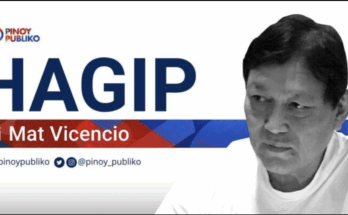THE Senate has been extra busy the past weeks now that hearings on next year’s proposed P5.76 trillion national budget have commenced.
After the general overview of the 2024 National Expenditures Program (NEP) by the Development Budget Coordination Committee (DBCC) comes the review of every department’s requested appropriation.
Oftentimes, these hearings have extended beyond their allotted time that the regular plenary sessions that usually start at 3 pm are moved to a much later time. (This would mean extended hours, too, for Senate employees and senator’s staff like me. Not that I am complaining though.)
Many items in the budget are deemed controversial, such as the P255 billion budget for flood control under the Department of Public Works and Highways (DPWH), which is bigger than the proposed budget of the entire agriculture sector at P181 billion, among others.
This week, on the hot seat, was Vice President and Education Secretary Sara Duterte, who requested a combined P650 million in confidential funds for her two offices (P500 million for the OVP and P150 million for DepEd) was scrutinized by the Senate Committee on Higher Education chair Chiz Escudero and opposition senators Koko Pimentel and Risa Hontiveros.
While the Vice President said the OVP and DepEd can do away with the confidential funds, she has still requested the allocation of finances for its separate intelligence gathering and surveillance operations targeting “threats” to their programs.
“We are not insisting. We can live without the confidential funds but our work will be much easier if we have the flexibility of confidential funds,” she stressed.
In the end, the VP said she is leaving it up to Congress if her request will be granted.
Perhaps, it would be best for government departments requesting for confidential and intelligence funds- not only the OVP and DepEd- to be transparent as to how they intend to disburse the money.
Through the course of the proceedings, I found out that there is an existing Joint Memorandum Circular issued by the DBM, DILG, DND and COA in 2015 during the time of President Noynoy Aquino on how these funds are to be spent.
JCM 2015-001 requires requesting agencies to present their “physical and financial plan” on how they intend to spend their confidential and/or intelligence funds.
Unfortunately, during the Senate hearing, DepEd Spokesman and Undersecretary Michael Poa refused to heed the suggestion of Escudero for the department to share with Congress-at-large its “physical and financial plan without violating the confidential nature of the funds.”
Poa maintained that per JCM, they are only required to submit the report to the President of the Philippines, the Senate President, Speaker of the House of Representatives; and the concerned Department Secretary.
In short, his department is not inclined, not willing to share the data with the legislators other than what was specified in the memo.
In the spirit of transparency and accountability, all departments with CF and IF should share this physical and financial plan.
This will show the public how they use the taxpayers’ money for national security and peace and order.
Under Section 4 (General Guidelines) of JMC 2015- 01, all allocations of CF and/or IF are required to be supported with a Physical and Financial Plan, indicating the proposed amount allocated for each program, activity, and project, where disbursements pertaining to CE and IE shall be based.
It is very clear: the JCM states that the funds are not to be used for payment of salaries and wages, overtime, additional compensation, allowance or other fringe benefits of officials and employees, representation/ entertainment expenses, consultancy fees and construction or acquisition of buildings or housing structures.
Submitting the report during the budget deliberations shall facilitate the approval of their requested budget.
The disbursement plans of government agencies will shed light on how these funds are spent and make the public aware that though the funds are confidential in nature, the money cannot be spent by government officials in any way they want.
This will disabuse the thoughts of the public that a confidential fund is a secret fund. No, it isn’t.





